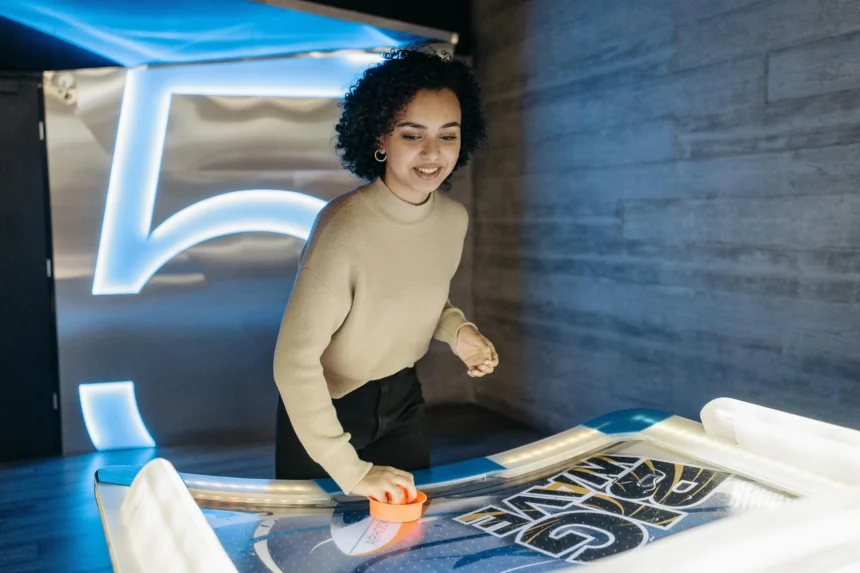Imagine a world where coaches don’t just rely on experience but have AI-powered insights to guide their teams. Where athletes train with the precision of data-driven analytics and injuries are prevented before they even happen. This isn’t science fiction it’s the reality of today’s sports industry. AI is changing the game, making sports smarter, safer, and more engaging for players and fans alike. In this article, we explore how artificial intelligence is reshaping the industry, with the latest innovations in sports tech news.
AI-Powered Performance Analytics
One of the most significant contributions of AI in sports is data-driven performance analytics. Teams and athletes use AI to analyze movements, optimize training, and improve game strategies. Some key advancements include:
- Wearable Sensors: Devices like smartwatches and fitness trackers collect real-time data on heart rate, speed, and endurance levels.
- Computer Vision Technology: AI-driven cameras track players’ movements, helping coaches identify strengths and weaknesses.
- Predictive Analytics: AI forecasts game outcomes by analyzing past performances, team dynamics, and player conditions.
These innovations in sports tech news are not just beneficial for professional athletes but also for amateur players looking to enhance their game.
Injury Prevention and Rehabilitation
Injuries are an unfortunate part of sports, but AI is helping minimize their impact. AI-based models analyze player movement patterns to predict and prevent injuries before they occur. Some notable applications include:
- Smart Rehabilitation Tools: AI-driven physical therapy applications customize recovery plans based on real-time progress.
- Biomechanical Analysis: AI monitors body movements to detect stress points and recommend corrective actions.
- Virtual Reality (VR) Training: AI-powered VR simulates real-game conditions to aid recovery without physical strain.
With these advancements, athletes can train smarter, reduce downtime, and prolong their careers.
AI in Sports Broadcasting and Fan Engagement
AI is also transforming how sports content is produced and consumed. Modern broadcasting technology uses AI to enhance the viewer experience. Some key innovations include:
- Automated Highlights Generation: AI analyzes matches to create instant highlight reels, saving hours of manual editing.
- Chatbots and Virtual Assistants: AI-powered bots provide real-time updates, stats, and match predictions to fans.
- Personalized Content: AI algorithms tailor sports content based on individual preferences, keeping fans more engaged.
This revolution in sports tech news ensures that fans stay connected and entertained like never before.
AI in Refereeing and Decision-Making
Human error in refereeing has always been a controversial topic in sports. AI is stepping in to make decision-making more precise and fair. Examples include:
- VAR (Video Assistant Referee): AI-powered video analysis helps referees make accurate calls in football.
- Hawk-Eye Technology: Used in tennis and cricket, this system provides accurate ball-tracking to resolve disputes.
- AI Umpires: Some sports are experimenting with AI-driven referees to minimize human bias and errors.
By integrating AI into officiating, sports are becoming fairer and more transparent.
The Future of AI in Sports
As AI continues to evolve, the possibilities for innovation in sports are endless. Future advancements may include:
- AI-Powered Smart Stadiums: Enhancing the fan experience with real-time data and interactive features.
- Advanced Player Training Systems: AI could create hyper-personalized training regimens for athletes.
- AI-Driven Esports Coaching: AI will play a larger role in analyzing and strategizing for competitive gaming.
With continuous advancements in sports tech news, AI is set to become an even more integral part of the industry.
Conclusion
AI is revolutionizing sports in ways we never imagined, from performance analytics to injury prevention and fan engagement. With AI-driven innovations, athletes perform better, games become fairer, and fans enjoy a more immersive experience. As technology progresses, what new AI advancements will redefine the world of sports next?





